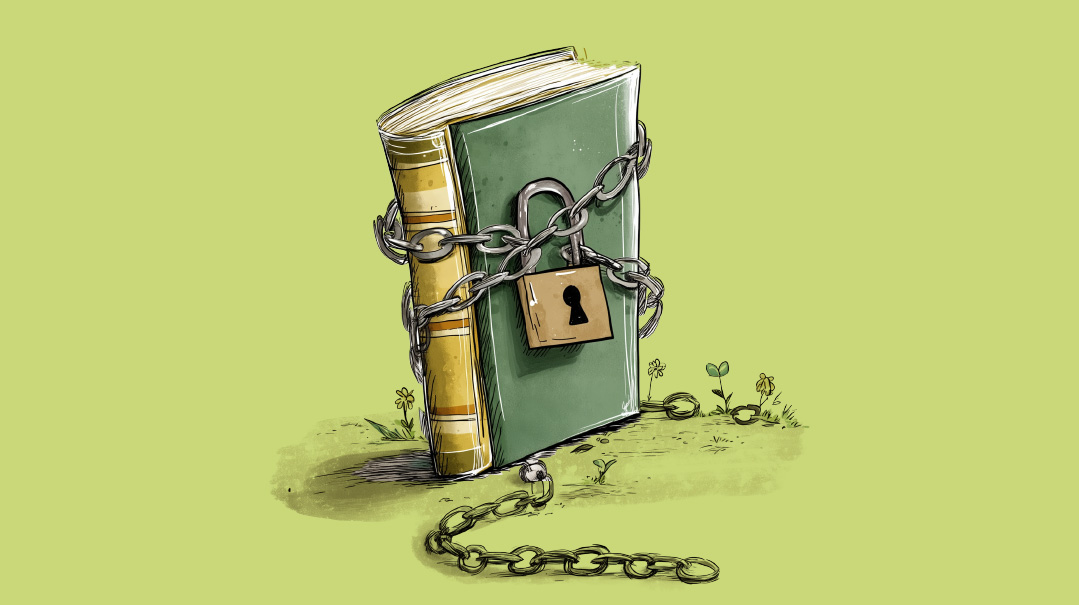Family First Inbox: Issue 854

This may not be comfortable content to consider, but it should be out there

Acknowledging their Anger [To Be Honest / Issue 852]
It’s not often that I have the opportunity to read an article that so eloquently gives voice to a population that clearly needed to be heard. This contribution verges on the historic and hopefully will be the impetus for change within our communities.
If the writer hasn’t yet started to consider a follow-up article, I strongly encourage her to do so. With respect, I would suggest adding two points. Perhaps she could give a stronger message of compassion and understanding for those who genuinely wish to help, but who are clueless or afraid to make a mistake. The writer indeed offers sound suggestions, but as she notes, every widow is different. And as experienced and sensitive as many professionals may be, we well know that we still occasionally miss the mark with our clinical interventions.
Additionally, and this I write as a therapist, there are widows who need permission to acknowledge and express their rage. First, rage and confusion at Heaven for placing them in a position to feel all the unbearable emotions and added daily challenges that the writer describes in her piece. Beyond this, however, rage at their husbands — for abandoning them, for leaving them to suffer and cope alone, for forcing them to give up, at least for the present, the full range of emotional and physical intimacy. This may not be comfortable content to consider, but it should be out there.
David S. Ribner, DSW
Bar Ilan University
You Gave Us a Voice [To Be Honest / Issue 852]
Ahuva Roth, thank you for seeing us and giving us a voice, the widows whose children have already flown the coop. Yes, every kind gesture — a call; suggesting to go out somewhere; drinking a cup of coffee together; an offer of a ride to a simchah — is a dose of encouragement that can change my day. We just want to feel “normal” like our neighbors, and your reaching out to us can help make that happen.
Alone,
Baltimore
State Your Preference [To Be Honest / Issue 852]
As someone who naturally enjoys connecting with and supporting others, I often call, text, or invite, particularly when someone I know is facing a challenge. However, not everyone responds to or accepts my gestures, which has led me to either stop or reduce my efforts for that person.
One suggestion I have is that when someone reaches out with an offer or gesture that may not be what you prefer, it could be helpful to respond with something like, “Thank you for your calls, but it’s a bit overwhelming for me right now, however sending a cake for Shabbos would really be appreciated,” or “I’m not quite in the mood for a walk at the moment, but please keep asking me,’’ or if someone consistently sends something, you could consider saying, “Thank you for being so thoughtful and sending those delicious muffins every week. However, for me, a simple text would mean a lot and show me that you’re here for me and that you care.”
If you find that the people around you aren’t reaching out as much as you’d like, it could be because they have experienced burnout from persisting in the past without much communication. So perhaps it might be helpful to express your needs openly, such as saying, “I’m feeling a need for company. Is there something we can do together?” or “I’m feeling a little lonely now and would love to chat,” or “I’m currently going through a difficult time and a simple text from you would brighten my day.”
Please remember that many people genuinely want to help and be there for you, but sometimes they may not know how or what would be most meaningful to you. By openly communicating your preferences and needs, you can build a deeper understanding and strengthen the support network around you.
And know that we deeply care and admire you!
SD
It’s A Chinuch Opportunity [Bye-Bye Sibling Rivalry / Issue 851]
I enjoyed reading Mrs. Levitansky’s strategies for dealing with sibling rivalry, as this is a common area where I see parents struggle.
There is so much potential in sibling rivalry. In fact, when done right, it is the best opportunity to develop fantastic social skills. Children who have to consistently contend with the emotional worlds of other children learn quickly what works and what doesn’t work.
It’s when parents interfere in that process that learning stagnates. We all value attention, and children logically value their parents’ attention, so any behavior that works to get parental attention will happen more often — including, you guessed it, fighting with siblings.
Allowing children instead to have the opportunity to learn what works is truly powerful. This is because of the strength of natural consequences. You can also use natural consequences outside of the moments of fighting, such as while reading a book with fighting in it, or just in a quiet moment, by bringing up how people lose out when they fight because it’s less fun, and then no one has a good time, or how much it pains you to watch them fight because you love them and enjoy so much when they play nicely together. Highlighting for them these consequences of their behavior, its impact on their fun, and its impact on you can be a useful additional piece.
Dr. Chaya Lieba Kobernick
The CBT/DBT Center
Speak to the Victim Only [Bye-Bye Sibling Rivalry / Issue 851]
I enjoyed reading your article about sibling rivalry. This was something very hard for me to deal with when I was raising my children. Now they’re getting it back from theirs.
I’d like to share with you an amazing method of defusing a fight. Instead of addressing the villain, only speak to the victim. Say things like, “Don’t worry, Yanky only wants to look at your truck, he’ll give it back to you when he’s finished, you’ll see.” Or, “She made a mistake, she really loves you and didn’t mean to hurt you. She’s feeling frustrated, sad, upset....”
This works almost every time, and it also teaches our children to give the benefit of the doubt.
Try it, you’ll never look back!
C. Tobias
Simultaneous Salvation [Hoping Together / Issue 850]
When I read your feature describing the recent Ohel Sarala event, I was so moved. I’ve always been inspired by Ohel Sarala; the concept of davening for another has motivated my own Tehillim for Shidduchim initiative, and I’m always in awe of the tremendous Hashgachah pratis seen through the power of davening together.
I’d like to share with you a personal Ohel Sarale Hashgachah pratis story we just experienced.
Upon starting shidduchim each of my girls signed up with Ohel Sarala to daven for a couple. My youngest daughter was davening so hard for her couple — even after she got engaged and married, their names were never far from her thoughts. A short time ago, my daughter was zocheh to her first child. And then we received the news from Ohel Sarala... that her couple just had their first son as well.
Mi k’amcha Yisrael!
May the power of our tefillos b’achdus send us the ultimate yeshuah!
Faigy Peritzman
(Originally featured in Family First, Issue 854)
Oops! We could not locate your form.







